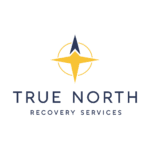Achieving financial independence after addiction is a pivotal step in the recovery journey, especially for men residing in sober living environments. Substance use disorders often lead to financial instability, making it essential to rebuild one’s financial health to support long-term sobriety and personal growth. This comprehensive guide offers practical strategies and insights to help men in sober living homes regain control over their finances and build a stable, independent future.
Understanding the Financial Impact of Addiction
Addiction can have devastating effects on an individual’s financial well-being. The costs associated with sustaining a substance use disorder, including purchasing drugs or alcohol, legal fees, healthcare expenses, and potential job loss, can lead to significant debt and financial instability. Recognizing these challenges is the first step toward recovery and financial independence.
Assessing Your Current Financial Situation
Before embarking on the path to financial independence, it’s crucial to evaluate your current financial standing. This involves:
- Listing All Debts: Compile a comprehensive list of all outstanding debts, including credit card balances, loans, and any other liabilities.
- Evaluating Income Sources: Identify all sources of income, such as employment earnings, government assistance, or support from family and friends.
- Analyzing Expenses: Track your monthly expenses to understand where your money is going and identify areas where you can cut costs.
This assessment provides a clear picture of your financial health and serves as a foundation for developing a realistic financial plan.
Creating a Realistic Budget
Budgeting is a fundamental tool in managing finances effectively. To create a budget:
- Calculate Monthly Income: Sum up all sources of income to determine your total monthly earnings.
- List Monthly Expenses: Categorize expenses into fixed (e.g., rent, utilities) and variable (e.g., groceries, entertainment) costs.
- Set Spending Limits: Assign spending limits to each category based on your income and prioritize essential expenses.
- Monitor and Adjust: Regularly review your budget to ensure adherence and make adjustments as necessary to accommodate changes in income or expenses.
Utilizing budgeting tools or apps can simplify this process and help maintain financial discipline.
Prioritizing Debt Repayment
Addressing outstanding debts is crucial for financial recovery. Consider the following strategies:
- Debt Snowball Method: Focus on paying off the smallest debts first while making minimum payments on larger ones. This approach can provide a sense of accomplishment and motivation.
- Debt Avalanche Method: Prioritize debts with the highest interest rates to minimize the total interest paid over time.
- Negotiating with Creditors: Communicate with creditors to discuss possible payment plans or settlements that align with your financial capabilities.
Consistent and timely payments are essential in rebuilding credit and achieving financial stability.
Building an Emergency Fund
Establishing an emergency fund provides a financial safety net for unexpected expenses, reducing the risk of financial setbacks. To build an emergency fund:
- Set a Savings Goal: Aim to save enough to cover 3-6 months’ worth of living expenses.
- Automate Savings: Set up automatic transfers to a dedicated savings account to ensure consistent contributions.
- Start Small: Begin with manageable amounts and gradually increase contributions as your financial situation improves.
An emergency fund enhances financial security and peace of mind during the recovery process.
Enhancing Financial Literacy
Improving financial literacy equips individuals with the knowledge to make informed financial decisions. Consider the following steps:
- Educational Resources: Utilize books, online courses, and workshops focused on personal finance topics such as budgeting, investing, and credit management.
- Financial Counseling: Seek guidance from financial advisors or counselors experienced in assisting individuals in recovery.
- Support Groups: Participate in support groups that address financial challenges specific to those recovering from addiction.
Enhanced financial literacy empowers individuals to take control of their financial future and make decisions that support long-term stability.
Securing Employment and Income
Gaining stable employment is a critical component of financial independence. To improve employability:
- Skill Development: Pursue education or training programs to acquire skills that are in demand in the job market.
- Resume Building: Create a professional resume that highlights your skills, experiences, and commitment to personal growth.
- Job Search Strategies: Utilize job search platforms, attend job fairs, and network with professionals in your desired field.
- Interview Preparation: Practice common interview questions and develop a narrative that positively frames your recovery journey.
Securing employment not only provides financial resources but also contributes to a sense of purpose and structure in daily life.
Managing Financial Triggers
For individuals in recovery, money can be a significant trigger for relapse. To manage financial triggers:
- Limit Cash Access: Use debit or prepaid cards instead of carrying large amounts of cash to reduce impulsive spending.
- Accountability Partners: Involve trusted friends or family members in financial decisions to provide support and oversight.
- Mindful Spending: Practice mindfulness when making purchases to ensure they align with your financial goals and needs.
Developing healthy financial habits is essential in maintaining sobriety and preventing relapse.
Utilizing Support Systems
Leveraging available support systems can significantly aid in financial recovery. Consider the following resources:
- Financial Support Groups: Join groups like Debtors Anonymous, which offer support and guidance for managing finances in recovery.
- Community Resources: Explore local organizations that provide financial education, job placement services, and other support for individuals in recovery.
- Professional Counseling: Engage with counselors who specialize in addiction recovery and financial management to develop personalized strategies.
Building a strong support network fosters accountability and provides encouragement throughout the financial recovery process.
True North Recovery Homes: Supporting Your Journey
True North Recovery Homes is dedicated to providing comprehensive addiction treatment and mental health services to support individuals on their path to recovery. Our programs are designed to address the unique challenges faced by men in sober living environments, offering personalized care that promotes holistic well-being.
Our services include:
- Individual and Group Therapy: Our therapy sessions address underlying mental health issues and trauma that can impact recovery and financial decision-making, helping residents develop healthier coping mechanisms.
- Life Skills Training: We provide practical training in essential life skills, such as financial management, resume building, and interview preparation, which are critical for reintegrating into society and gaining financial independence.
- Community and Peer Support: At True North, residents benefit from a supportive community environment that fosters accountability and encouragement, making it easier to stick to financial and personal goals.
By combining addiction treatment with practical skills training, True North Recovery Homes equips men with the tools they need to not only stay sober but also to thrive independently in every aspect of life, including financial health.
Finding Purpose Through Financial Independence
For many men in recovery, financial independence is more than just about money—it’s about rebuilding a sense of self-worth and purpose. Achieving financial stability can empower you to take control of your life and make meaningful contributions to society.
- Fulfilling Responsibilities: Financial independence allows you to fulfill responsibilities to family, friends, and society. This can mean supporting loved ones, paying off debts, or contributing to your community.
- Investing in Personal Growth: Financial stability enables you to explore personal passions and hobbies, which enrich your life and contribute to mental well-being.
- Setting an Example for Others: By achieving financial independence, you can inspire others in the recovery community, showing that it’s possible to overcome addiction and build a prosperous future.
- Giving Back: When financially secure, many individuals find purpose in giving back, whether through donations, volunteering, or mentoring others on a similar journey.
Financial independence fosters a profound sense of self-efficacy and purpose, reinforcing your commitment to a sober, fulfilling life.
Final Thoughts on Financial Independence After Addiction
Building financial independence after addiction requires time, patience, and a willingness to adapt. Every step, from budgeting and managing debts to setting long-term goals, contributes to a more secure and empowered life. For men in sober living environments, the journey to financial stability is not just about numbers on a page—it’s about regaining control, finding purpose, and nurturing a life that supports long-term sobriety.
True North Recovery Homes and other supportive communities offer guidance and resources that make the process manageable, emphasizing that no one has to do this alone. By taking these steps, you’re investing in your future, ensuring that each milestone achieved brings you closer to lasting freedom, both financially and personally.


